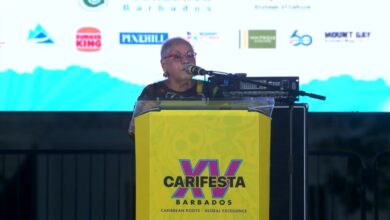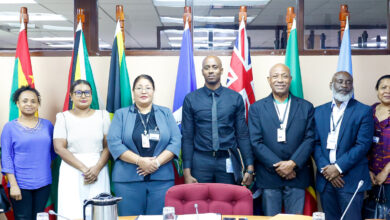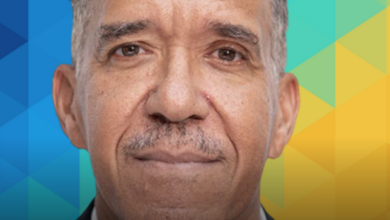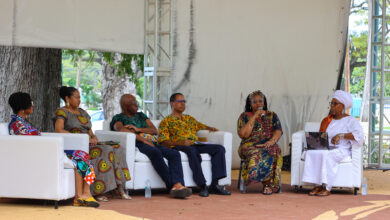(CARICOM Secretariat, Turkeyen, Greater Georgetown, Guyana) I would like to thank the organisers of this event for inviting me to share thoughts, ideas and information with you. I welcome this opportunity to have this dialogue with you today as this kind of forum has been a feature of my visits throughout the Community since assuming office last August. It is not my intention to deliver a speech to you this morning. Instead I look forward to the interaction with you to receive your views about CARICOM and your ideas about advancing the integration process. This kind of dialogue with key stakeholders in the integration movement is vital for understanding and for progress.
It also is occurring at a very opportune time given the lively debate here in Jamaica about your country’s role in the Caribbean Community and the fact of the 33rd Meeting of the Heads of Government starting in Saint Lucia next Wednesday.
At the opening of the Regional Headquarters of the University of the West Indies on Wednesday night, Prime Minister, the Most Honourable Portia Simpson-Miller made a strong statement with respect to Jamaica and CARICOM. She left no doubt that her government was in full support of the regional movement and would do all that it could to strengthen CARICOM. Such clear and unequivocal support undoubtedly helps to set the tone for next week’s meeting of the leaders.
The primary concern of those leaders as expressed after last year’s Special Retreat in Guyana is putting people at the centre of the integration process. We have to move forward from the theoretical constructs that have guided the movement and concentrate on ensuring that there is a positive impact on the lives of our people. The farmer in Mandeville, the fisherman in Saint Lucia, the businessman in Suriname, the University student in Belize, the minibus driver in Guyana all must be able to benefit in some way from the plans, programmes and projects of their Caribbean Community. Crucially they must also be able to recognise that those benefits came as a result of the integration process.
My friends let it be clear. CARICOM spans and affects a wide range of daily life in all our countries. Last night the Caribbean Disaster Emergency Management Agency (CDEMA) opened its Council Meeting next door at the Courtleigh Hotel. Jamaica is now chair of that Council which makes policy for that Agency which is a CARICOM created body.
For the past month and a half, Jamaican secondary school students like their counterparts throughout the Region have been involved in their CSEC and CAPE examinations operated by the Caribbean Examinations Council (CXC), a CARICOM created institution.
In health, the actions of the Pan Caribbean Partnership Against HIV and Aids (PANCAP) have resulted in a fifty percent reduction in the cost of anti-retroviral drugs to combat the deadly disease throughout our Region. PANCAP is a CARICOM body. Negotiating as a group on the international stage has given us access to markets which provide potential benefits for our producers, manufacturers and service industries in some cases. This creates opportunities for employment in those sectors.
In the international arena our collective voices are greater than the sum of the individual parts. Acting collectively has afforded us a greater presence in the international community to advance our major concerns such as the situation of small, vulnerable, highly indebted middle income countries which characterise our Region. Many countries such as Mexico, Canada, Australia, Brazil, and South Africa who are Members of the G20, where the international financial architecture is being discussed are paying attention to our concerns. Next week our leaders when they meet will seek to strengthen the Region’s approach to a co-ordinated foreign policy.
I have given those examples to demonstrate CARICOM is not only about trade and that it should not be judged solely by its performance in that area, as important as that may be. It is about the overall development of our people. Indeed if one tracks the evolution of CARICOM following the demise of the Federation, one would notice a common thread through all the efforts to build a regional movement. The first meeting of the Conference of Heads of Government in 1963 was convened around ensuring that common services such as education and meteorology were maintained throughout the Region after the Federation failed. CARIFTA was about free trade but it was also joint production for external markets, the equitable distribution of investment to ensure widespread employment and most importantly the development of our people.
The original Treaty of Chaguaramas in 1973 identified three pillars upon which the Caribbean Community and Common Market were to be constructed. These were economic integration, foreign policy co-ordination and functional co-operation which referred to activities in such areas as health, education, youth, culture and sport. The Revised Treaty of 2001 listed nine objectives for the Community, the first of which is “improved standards of living and work.” Since then the pillars have been reformulated and increased to four with functional co-operation replaced by human and social development and the addition of security co-operation.
None of this negates the importance of trade but it shows that trade is one element of a much broader landscape in CARICOM.
I am certain that we would get into the discussion later with respect to the trade imbalance between Jamaica and the rest of the Community. I would like to make one point on that matter at this stage. The trade imbalance being experienced by Jamaica reflects trade in respect of goods only. However that is only part of the picture. To consider the true picture of the balance of trade you must take into account trade in services in which it has been suggested that Jamaica has a comparative advantage such as in cultural industries and professional services. Regrettably data in trade in services is not readily available.
Before ending these remarks let me say something about the CARICOM Single Market and Economy (CSME). A lot of time and energy, mental and physical, has been invested by this Community in building this enterprise. Much progress has been made but I will admit we have a way to go still. The design of the CSME as envisaged by the Revised Treaty caters for greater cross border investment and production integration within the Community thereby laying a platform to be able to compete in the international trading arena. Perhaps we may have been a bit too theoretical in our approach to the construct of the CSME. We need to take stock of where we are and be more strategic as we seek to advance the work related to the CSME.
For example, if job creation and competitiveness are among the objectives of CARICOM, as they are, we need to ask ourselves what can we do collectively to achieve these goals and act decisively in that direction. This is a work in progress and we will be consulting with stakeholders in the near future.
With these not so few words I look forward to the dialogue. I thank you.





